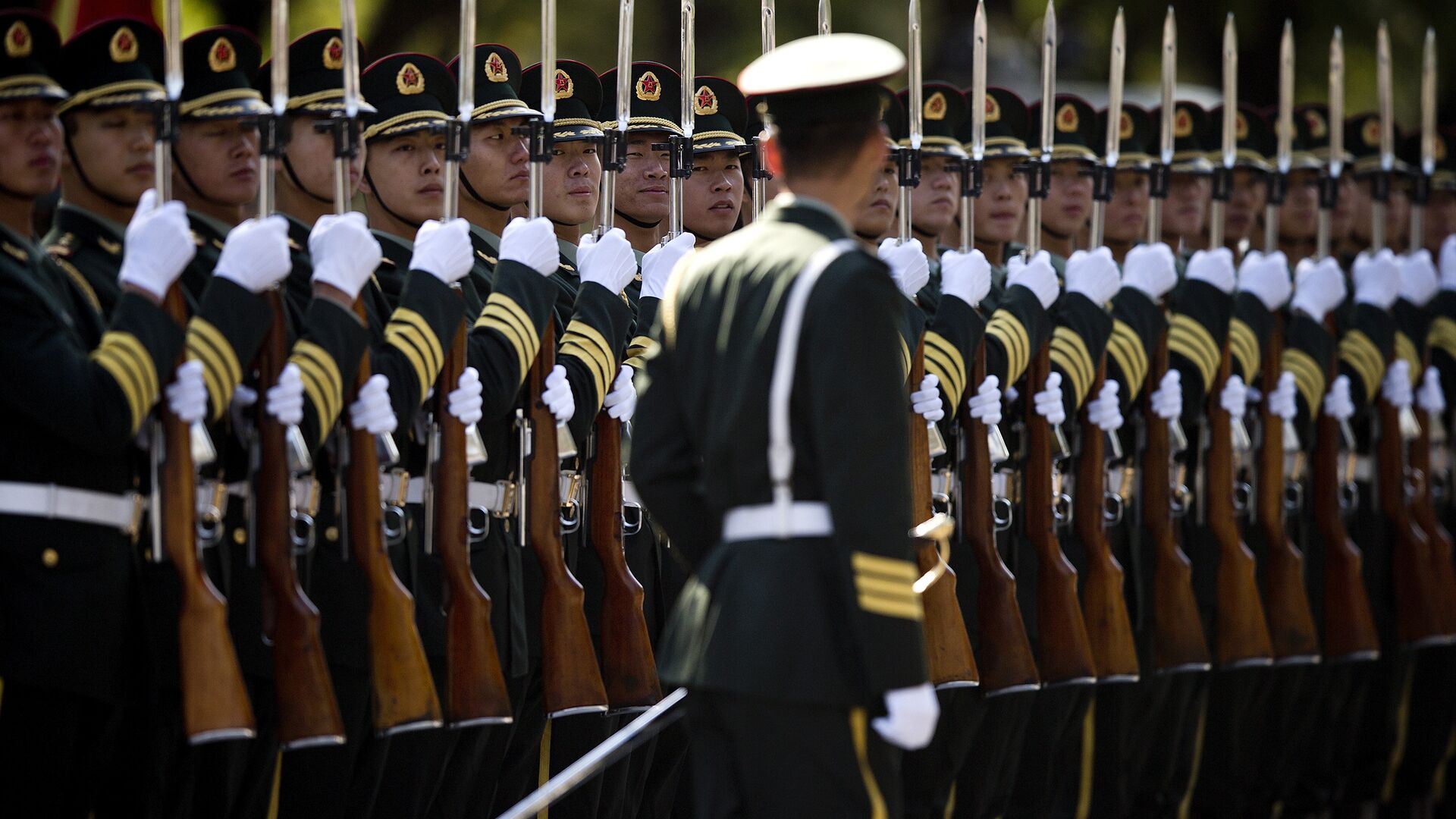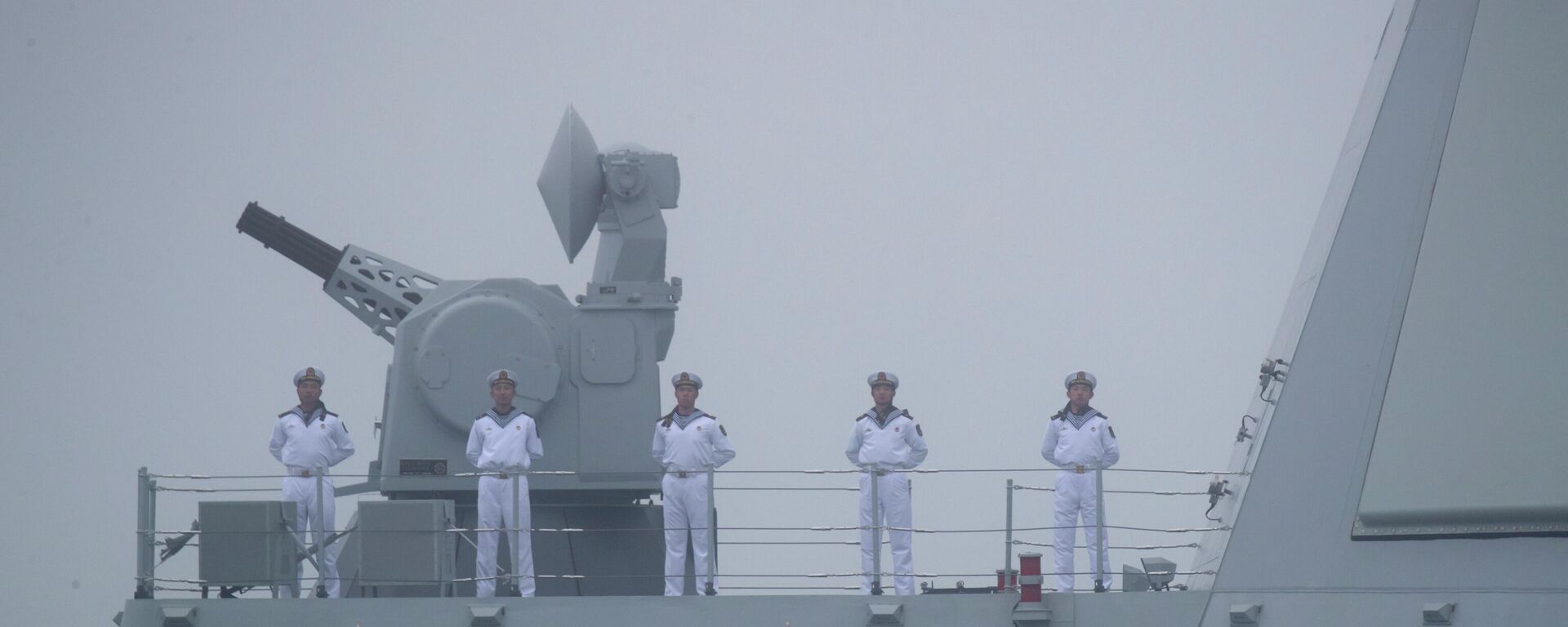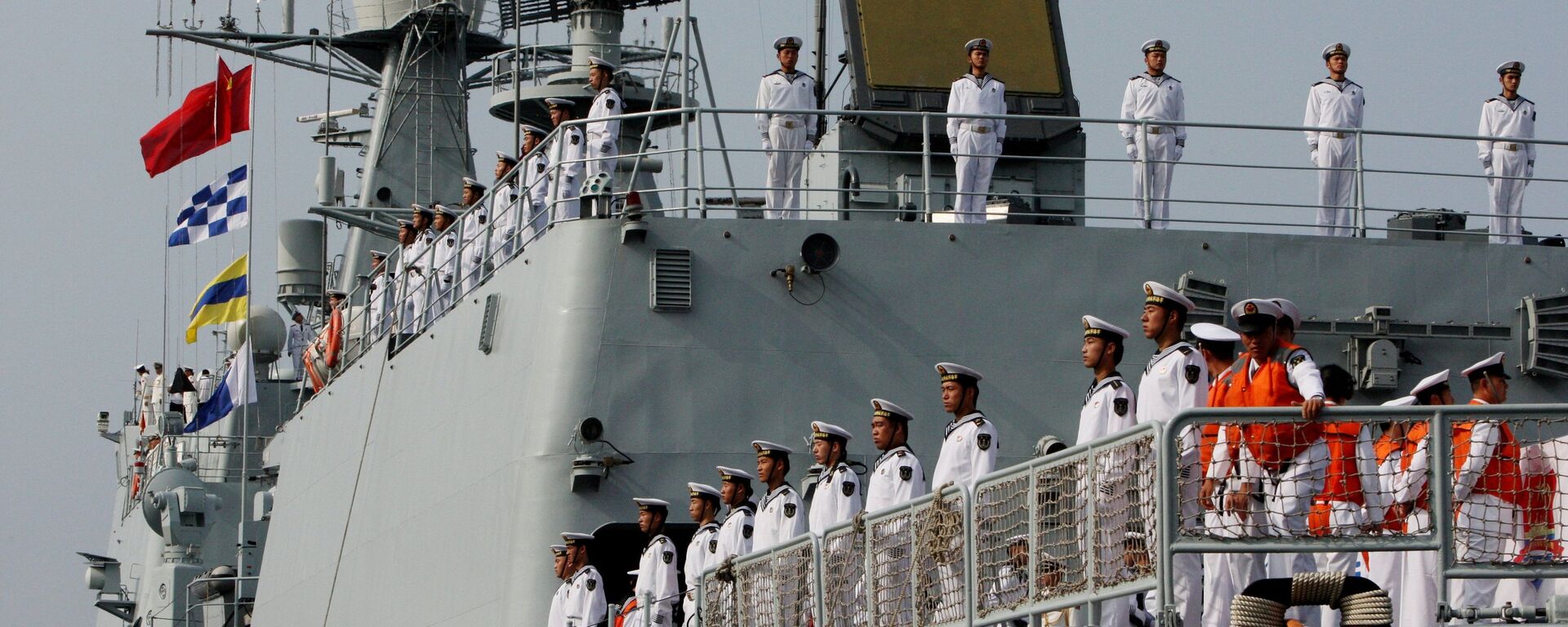How Chinese Military Applies Psy-Op Tactics to Counter US Visits to Taiwan
17:48 GMT 08.07.2022 (Updated: 12:44 GMT 19.06.2023)

© AP Photo / Andy Wong
Subscribe
The Chinese Army announced that it kicked off joint alert patrol and realistic combat-scenario drills in maritime and aerial spaces around the Taiwan Straits on Friday over the arrival of a US delegation. The delegation was led by Senator Rick Scott who met Taiwanese president Tsai Ing-wen on 7 July.
The People’s Liberation Army (PLA) Eastern Theater Command lambasted the US for "collusion and provocations" on 8 July, stressing that its troops are on high alert and are ready to enhance combat preparedness to safeguard China's national sovereignty, security, and peace. It also accused the US of encouraging Taiwan's secessionist sentiment.
"There are three major channels to deliver political signals to Taipei," explained Dr. Chang Ching, a research fellow from the Taiwan-based Society for Strategic Studies and a lead military expert on the People's Liberation Army and regional security in Taiwan. "They are spokespersons of Beijing’s Foreign Ministry, Taiwan Affairs Office and the Defense Ministry. It is relatively unusual to direct a PLA spokesman to deliver such political signals."
Dr. Chang suggests that the PLA's statement appears to be a new psychological operation aimed at the US and Taiwan. The military expert has drawn attention to the fact that "for any sophisticated and well organized military maneuvers, it is always necessary to have proper prior preparation." As such, he suggested that the exercises and the US visit are not causally linked.
"The possibility for the People’s Liberation Army to conduct an improvised military exercise simply reacting to any United States political figure visiting Taiwan is extremely low," the professor argued. "The visit of the US Senator Rick Scott to Taiwan, the premeditated military [exercises] in airspace and waters around Taiwan and the PLA routine press conference just happened on the same day. And a smart PLA spokesman grabbed the chance to exercise his psychological warfare skill and achieve the perception of warfare effects."
Washington's Unbalanced China Strategy
The US has been heating up the Taiwan Starits recently. In October 2021, a US special-operations unit and a contingent of Marines were discovered secretly operating in Taiwan for about a year to train military forces. Furthermore, Washington has doubled its unofficial military presence on the island between 31 December 2020 and 30 September 2021, according to the Pentagon's Defense Manpower Data Center. Beijing issued warnings to Washington over the reports.
Washington also upped the ante against China in late February by sending a delegation of former senior defense and security officials to meet Taiwan's president and defense minister, despite Beijing blasting the move as a violation of the China’s sovereignty.
Over the past few months, the Biden administration has likewise ramped up its rhetoric over Taiwan with President Joe Biden even going so far as to repeatedly pledge to "defend" the island from China. Beijing harshly criticized Biden's statements, even though the White House walked the president’s remarks back.
As the Beijing-based daily Global Times commented on the matter, "Biden’s remarks on 'intervening militarily' in the Taiwan question are not a gaffe but signal [the] hollowing out [of Beijing’s] One China policy." In accordance with the One China Policy, Taiwan is part of the People's Republic of China (PRC). However, Washington has long maintained relations with the island, even though it severed official diplomatic ties with Taipei in 1979.
"There are many political commentators and military analysts expecting the worst-case scenario will emerge sooner or later," said Dr. Chang, referring to the possibility of a US-China military standoff over Taiwan. "However, as long as all parties involved in such a circumstance with high uncertainties and tensions are sensible enough, the hope for peaceful resolution of the cross-strait animosities will not totally diminish though many observers will think otherwise."
The professor believes that as for now, the possibility of any significant Sino-US conflict is quite unlikely. While the differences between Washington and Beijing do exist, "the mutual communication channel and crisis prevention mechanism is also functional," according to the expert.
Dr. Chang went on to claim that the Biden administration's provocative moves with regard to Taiwan could be explained by simmering divisions within the White House.
"Many indications of internal conflicts emerged within his national security and foreign policy team members," he said. "Some key members still keep strong ambition to exercise the salami-slicing tactics on [the] Taiwan issue for acquiring leverage towards Beijing. On the other hand, there are other members who are more willing to seek the possibility for mutual cooperation with their counterparts in Beijing and they will exercise a different set of policies towards Taipei and Beijing accordingly."
As a result, the US administration's strategy remains inconsistent, with Biden’s government being "an orchestra with no competent conductor to coordinate his foreign and security policies."
However, Washington's unbalanced approach comes at the expense of the Taiwanese inhabitants. The present administration's negligence to the peace and stability of the region stems from the fact that "the criteria of supporting Taiwan is to serve the United States national interests, not Taiwan’s welfare," according to the professor.
"Of course, in some cases, there are mutually beneficial solutions and arrangements in US-Taiwan relations," he said. "Nonetheless, US interests are always the concern with higher priority for the leaders in Washington."



